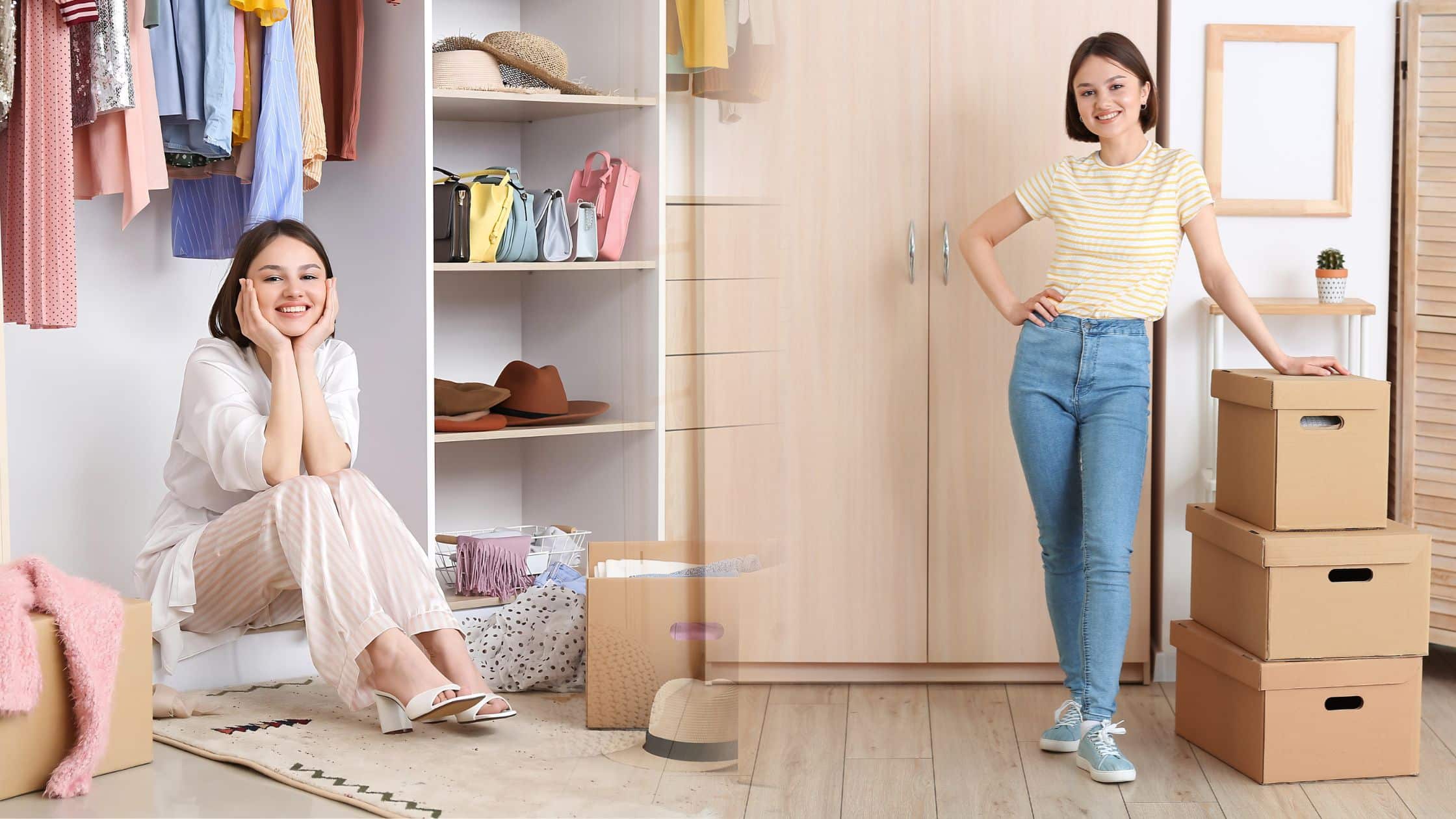In today’s busy world, it’s easy for our homes and workspaces to become cluttered and chaotic. Clutter not only makes it hard to find things but can also contribute to stress and anxiety. Transforming chaos into calm involves adopting effective, decluttering tips and strategies. This article will guide you through practical steps to help you reclaim your space and restore a sense of order and peace to your life. Additionally, we’ll address some frequently asked questions to help you on your decluttering tips and journey and understand the decluttering process and recommendations.
Elderly individuals often encounter notable difficulties when it comes to decluttering their homes. Research indicates that approximately one-third of people aged 70 and above have not disposed of any items in their household within the past year. This article delves into the reasons behind this phenomenon while exploring potential implications for seniors’ well-being.
Effective Decluttering Tips and Strategies
1. Start Small and Set Achievable Goals
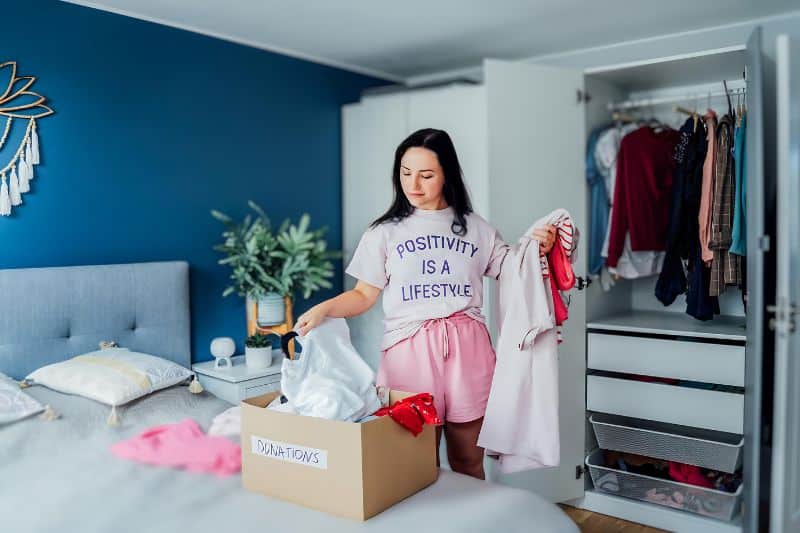
The idea of decluttering an entire house can be overwhelming. Begin with decluttering a small area like one drawer or a single shelf using effective decluttering strategies. Set achievable goals, such as start with one category and start decluttering one category in it for 15 minutes daily for past year or one room per week. Small victories will keep you motivated and prevent burnout.
2. Sort and Categorize
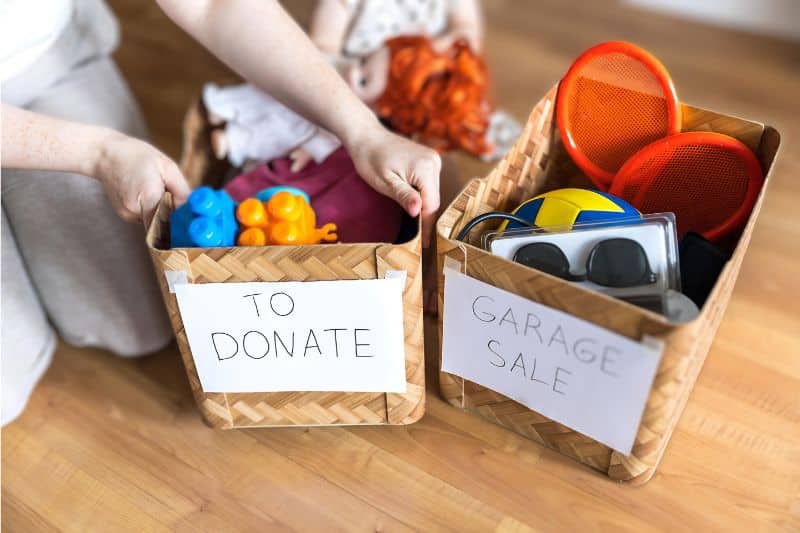
Create categories for decluttering your home, clothes, and belongings using effective decluttering strategies: keep, donate, sell, recycle, and trash. Decluttering can feel overwhelming, especially when dealing with sentimental items. Evaluate each single item using proper decluttering strategies to start decluttering honestly—if it doesn’t serve a purpose or bring joy to your home, it’s time to let it go. Being truthful with yourself is key to effective decluttering tips.
3. Adopt the One-In, One-Out Rule

To maintain a clutter-free environment and enjoy the benefits of owning fewer possessions, implement effective decluttering strategies such as the one-in, one-out rule. For every new item you decide to store or acquire, remove an old one using proper decluttering strategies. This practice helps prevent the accumulation and storage of new piles of stuff and get rid of clutter.
4. Use Smart Storage Solutions

Invest in smart storage solutions like baskets, bins, and shelves as part of your decluttering strategies. Label containers for easy access and organization, ensuring that everything has a designated space. Multifunctional furniture with built-in storage spaces can be especially useful in implementing decluttering strategies to store items from other rooms and smaller spaces. Additionally, make it a habit to store and return items like remote controls and electronics to their proper home storage places to maintain a neat and organized living room or room.
5. Establish a Daily Tidying Routine for Your Living Spaces

Incorporate decluttering strategies to keep clear surfaces in your house, living room, closet, or space clear and calm. Spend a few minutes each day implementing decluttering strategies such as organizing your room or space, sorting clothes and shoes, and handling mail. Make sure to put things away on clear surfaces like side tables. This simple habit of incorporating decluttering strategies prevents small messes from becoming overwhelming.
6. Declutter Digitally
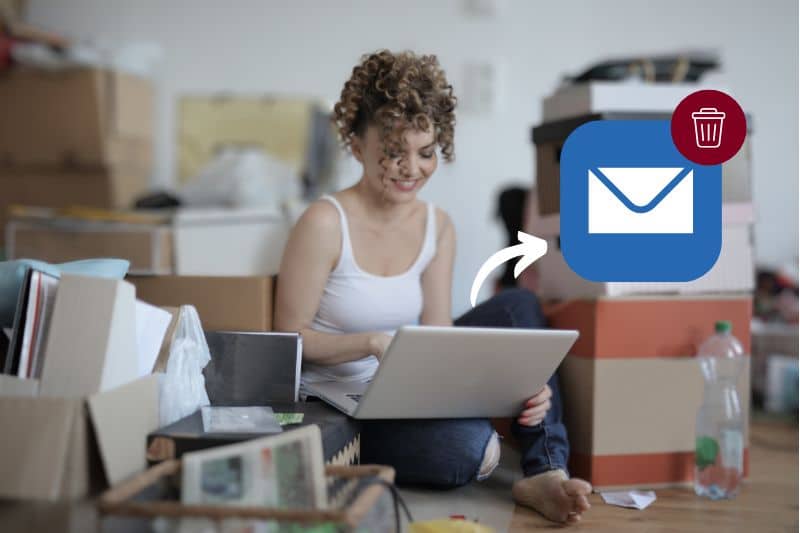
Digital clutter can be just as distracting and feel overwhelming as physical clutter. Regularly clean out your email inbox using decluttering strategies, delete unused apps, and organize files. Unsubscribe from newsletters you don’t read to further declutter your digital life.
7. Seek a Professional Organizer if Needed
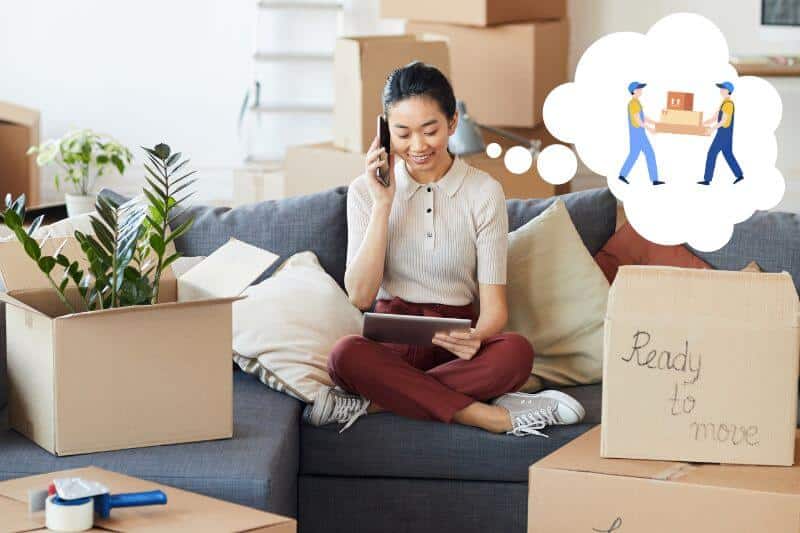
If the task feels too daunting, consider the benefits of hiring a professional organizer. They can provide expert guidance and tips, personalized decluttering strategies, and help you create a system tailored to your needs.
Additionally, family members can be valuable sources of support in the decluttering and cleaning process, assisting with physical cleaning and decluttering tasks using decluttering strategies and offering emotional encouragement.
8. Practice Mindfulness and Gratitude
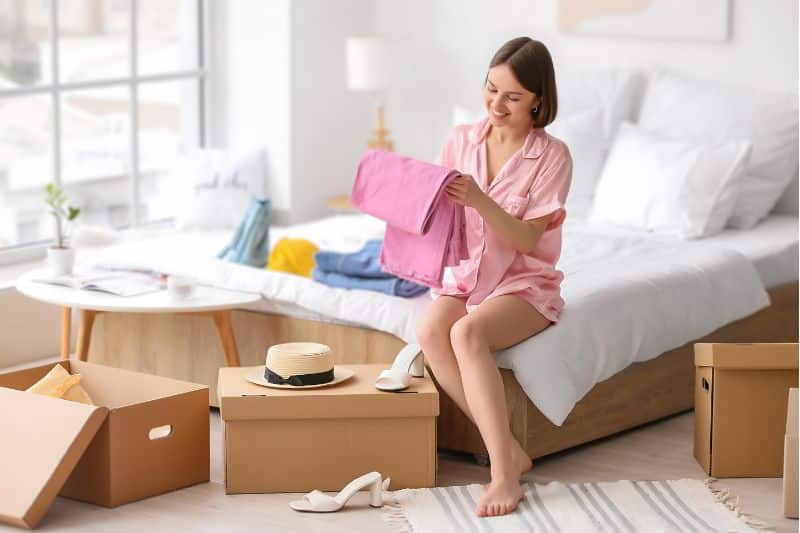
Decluttering strategies is as much about mindset as it is about organizing. Practice mindfulness and gratitude to develop a healthier relationship with your possessions and utilize decluttering strategies to spend less time. Be mindful of your purchasing habits and appreciate the items, employing more stuff fewer possessions that you keep.
9. Celebrate Your Progress

Acknowledge and celebrate your progress, no matter how big or small the task. Making use of decluttering strategies is the first step on a journey, and every step forward is an achievement. Reward yourself and enjoy the benefits, peace and calm of a decluttered living space.
Embrace the Journey: Transforming Your Space and Mind through Decluttering
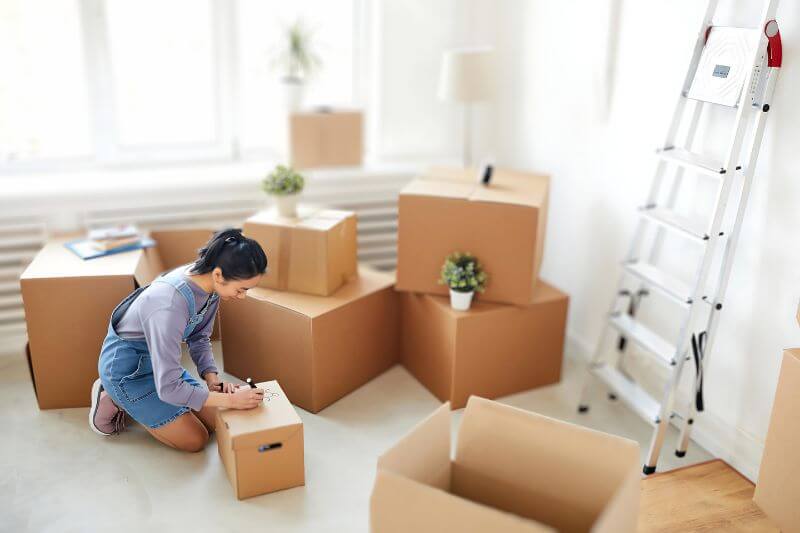
By implementing these decluttering strategies and addressing common concerns, you can gradually transform chaos into calm and create a more organized, peaceful living space and environment. Decluttering is not just about tidying up and putting things back; it’s about reclaiming your space enough time, and your peace of mind. An organized home can significantly reduce stress, increase productivity, and improve overall well-being. It’s important to remember that the goal is progress, not perfection.
Every small step you take towards the decluttering strategies process is a step towards a more harmonious life.Start to declutter your home with manageable tasks to build momentum and avoid feeling overwhelmed. Consistency is key—developing daily habits and routines will help maintain the order you’ve worked hard to establish your entire home. As you continue to furt
her declutter your home, you’ll find that your home becomes a sanctuary, a place where you can relax and recharge.
In summary the benefits of creating a clutter-free home extend beyond physical space; they influence your mental and emotional health as well. So, take your time, stay patient with yourself, and celebrate each milestone along the way. Enjoy the profound sense of calm and clarity that comes with living in an organized, clutter-free environment.
FAQs About Decluttering Tips
Q: How do I decide what to keep and what to get rid of?

A: Ask yourself to decide if the item is useful, meaningful, or brings the person around you joy. If you decide it doesn’t serve a purpose or make the person around you happy, consider being rid or letting rid of it go. Use the “Marie Kondo” method of being rid or asking if an item sparks joy as a guideline.
Q: What should I do with unwanted items I no longer need?

A: Sort items and unwanted items out into categories: donate, sell, recycle, throw out, or throw in trash. Donate gently used items to charities, sell valuable items online, keep shoes and clothes, recycle where possible, and dispose of the rest responsibly.
Q: How can I prevent clutter from building up again?

A: Adopt the one-in a room, one-out a room rule to maintain balance. Establish a daily tidying routine and be mindful of your purchasing habits. Regularly review and declutter areas prone to accumulation piles and rid yourself of more stuff around the house, the bathroom for example, including clutter from other rooms.
Q: What if I feel overwhelmed by the amount of clutter?

Start small and break the big task into manageable steps to declutter and organize your entire home. Focus on one area or room at first step least one drawer at a time and stay motivated and set realistic goals. Consider seeking help from family members a professional organizer if needed.
Q: How often should I declutter?
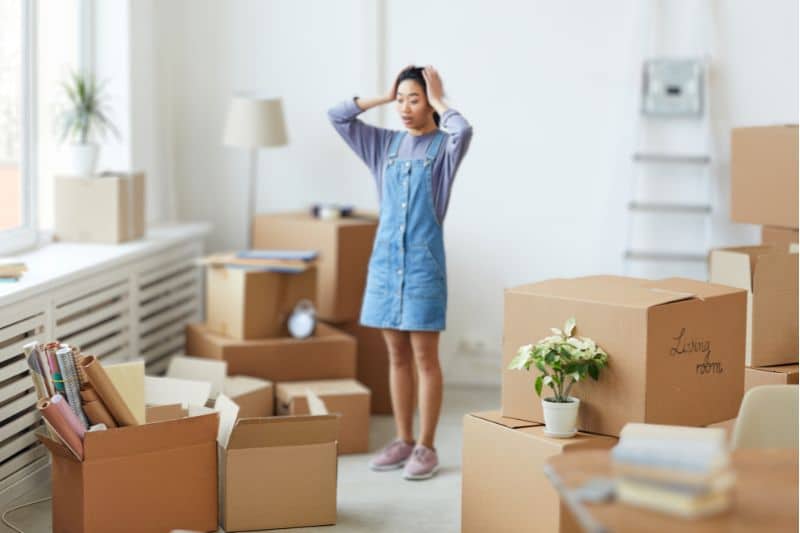
A: Decluttering your bottom drawer, closet, front room, bathroom and house should be an ongoing process. Regularly assess your belongings and declutter as needed. Establishing a routine, such as monthly or quarterly closet and living room reviews, can help keep clutter under control.
Q: Can decluttering improve my mental health?

A: Yes, decluttering can reduce stress and anxiety, keep focus, increase productivity, and create empty spaces and a sense of calm. A tidy, cluttered and organized space can have a positive impact on your life and your mental well-being.

